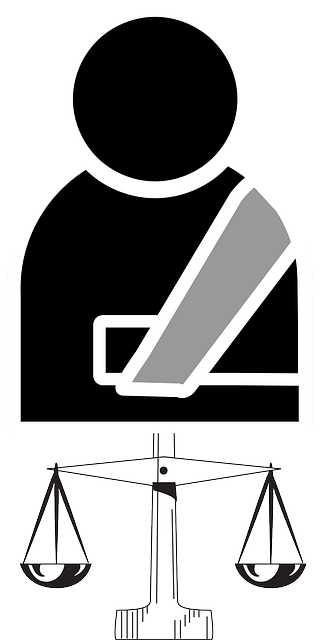Personal injury law compensates individuals for physical, emotional, and financial harm caused by others, covering cases from car accidents to medical malpractice. Understanding this domain is vital for both victims seeking justice and defendants ensuring fair practices. Key case types include motor vehicle accidents, medical malpractice, and premises liability, with processes involving claim filing, evidence gathering, negotiations, or litigation. Victims have rights to compensation for medical expenses, pain & suffering, while defendants must respond within timelines, provide evidence, and adhere to court orders. Insurance companies play a central role in financial support and representation throughout legal proceedings.
Personal injury law encompasses a range of legal issues surrounding accidents and their aftermath. If you’ve been injured due to someone else’s negligence, understanding your rights is crucial. This comprehensive guide delves into the intricacies of personal injury law, exploring common types of cases, the claim filing process, and the rights and responsibilities involved. Stay informed to navigate this complex landscape effectively.
- Understanding Personal Injury Law: A Comprehensive Overview
- Common Types of Personal Injury Cases and Their Legal Implications
- The Process of Filing a Personal Injury Claim: Step-by-Step Guide
- Rights and Responsibilities of Individuals Involved in Personal Injury Lawsuits
Understanding Personal Injury Law: A Comprehensive Overview

Personal injury law is a complex yet crucial legal domain that focuses on compensating individuals for physical, emotional, and financial harm suffered due to another party’s negligence or intentional actions. This area of law encompasses a wide range of cases, from car accidents and slip-and-fall incidents to medical malpractice and workplace injuries. Understanding personal injury law is essential for both victims seeking justice and defendants ensuring fair practices.
At its core, personal injury law aims to provide remedies for victims, ensuring they receive adequate compensation for their losses. This includes reimbursement for medical expenses, rehabilitation costs, lost wages, and pain and suffering. The process involves filing a claim, gathering evidence, and often engaging in negotiations or litigation to reach a fair settlement. Key concepts like negligence, liability, and damages play a pivotal role in determining the outcome of personal injury cases, making it vital for individuals affected by such incidents to be aware of their rights and legal options under personal injury law.
Common Types of Personal Injury Cases and Their Legal Implications

In the realm of personal injury law, several common types of cases emerge, each with distinct legal implications. Motor vehicle accidents top the list, involving collisions between cars, trucks, or other vehicles, leading to a range of injuries from minor bruises to severe paralysis. These cases often hinge on negligence, where one party fails to exercise reasonable care, such as speeding, running red lights, or distracted driving.
Another prevalent category is medical malpractice, arising from errors or omissions by healthcare professionals during diagnosis, treatment, or surgery. This includes misdiagnosis, prescription errors, and surgical mishaps. The legal landscape here involves proving professional negligence through expert testimony and adhering to strict statutes of limitations. Additionally, premises liability claims surface when individuals sustain injuries on someone else’s property due to unsafe conditions, like slip-and-fall incidents or dog bites, prompting property owners to maintain safe environments under the law.
The Process of Filing a Personal Injury Claim: Step-by-Step Guide

When considering a personal injury claim under personal injury law, it’s important to understand the process involved. The first step is to assess your situation and gather relevant information, including medical records, witness statements, and evidence of any financial losses or damages incurred. This phase requires careful documentation and organization as it forms the foundation for your case.
Next, research and consult with an experienced attorney specializing in personal injury law to discuss your options and rights. They will guide you through the legal process, ensuring compliance with statute of limitations and necessary procedures. Together, you’ll formulate a strategy, prepare a demand letter, or file a lawsuit against the responsible party. This collaborative effort aims to secure compensation for your injuries, medical expenses, pain and suffering, lost wages, and other associated damages as stipulated under personal injury law.
Rights and Responsibilities of Individuals Involved in Personal Injury Lawsuits

When involved in a personal injury lawsuit, individuals have specific rights and responsibilities that are crucial to navigating the legal process effectively. The first step is to understand that everyone involved—the victim, the at-fault party, and their respective insurance companies—has a role to play in ensuring justice and fair compensation. Victims have the right to seek reimbursement for medical expenses, pain and suffering, and any other damages incurred due to the injury. They are also responsible for providing accurate information and cooperating with legal proceedings.
The at-fault party, or defendant, has an obligation to respond to the lawsuit within a specified timeframe, typically through their insurance provider. They must present evidence that contradicts the victim’s claims if possible. Responsibilities include attending court hearings, adhering to any temporary orders, and maintaining records related to the incident. Insurance companies play a pivotal role in personal injury law by providing financial support to both parties, from covering medical bills to potential settlements or judgments. They are responsible for investigating claims, negotiating settlements, and representing their policyholders’ interests throughout legal proceedings.
Personal injury law plays a crucial role in ensuring justice and compensation for individuals who have suffered harm due to someone else’s negligence. By understanding the various types of cases, the legal process involved, and the rights of all parties, you can navigate this complex landscape with confidence. This comprehensive guide equips you with knowledge, enabling you to make informed decisions and seek the rightful redress you deserve in personal injury law matters.
